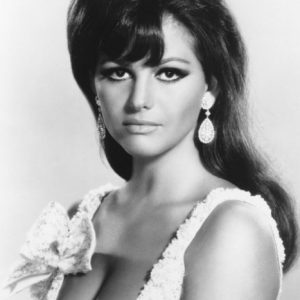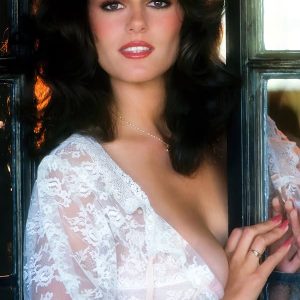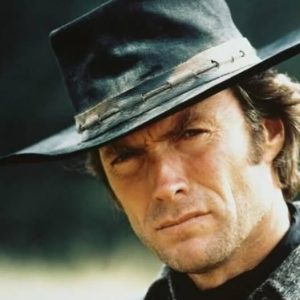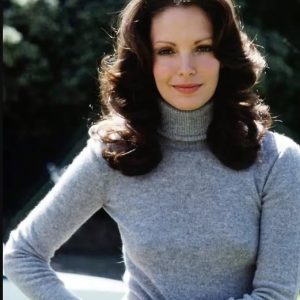When Charlie’s Angels first hit the small screen in 1976, no one could have predicted the massive cultural impact it would have. Created by Ivan Goff and Ben Roberts, the show introduced a revolutionary concept in television—three women solving high-stakes mysteries under the guidance of their unseen boss, Charlie Townsend. What began as a crime drama quickly evolved into a pop culture sensation, with Farrah Fawcett, Kate Jackson, and Jaclyn Smith as the iconic Angels.
The series combined action, intrigue, and a touch of glamour, capturing the hearts of viewers across the world. Despite early skepticism that the show was merely “jiggle television,” Charlie’s Angels defied expectations, dominating the airwaves for several seasons. The unique blend of crime-fighting and feminine power made it stand out in the 1970s television landscape.
The Cast Evolution: Changes that Shaped the Show

One of the most interesting aspects of Charlie’s Angels is its ever-changing cast. As the show progressed, the dynamic between the Angels shifted with new additions and departures. Initially, Fawcett, Jackson, and Smith formed the core trio, but when Farrah Fawcett left after the first season, Cheryl Ladd stepped in as Kris Munroe. This change helped maintain the show’s momentum, and Ladd’s addition made the Angel team even more diverse.
Later, as Kate Jackson exited in season three, Shelley Hack joined the cast as Tiffany Welles. However, Hack’s tenure was brief, and Tanya Roberts replaced her in season five. Throughout these changes, Jaclyn Smith’s portrayal of Kelly Garrett remained a constant, providing a sense of continuity and familiarity for viewers.
While the rotating cast posed challenges, it kept the show fresh and exciting. The presence of new Angels allowed for different personalities and approaches to crime-fighting, helping the show stay relevant in an evolving television landscape.
The Decline: Why Charlie’s Angels Lost Its Shine
Despite its strong start, Charlie’s Angels began to slip in popularity by the 1980s. After peaking in the top 10 in its first two seasons, the show gradually lost its grip on the ratings. By season three, it fell out of the top 10, and by season five, it had dropped from the top 30. Several factors contributed to this decline.
First, the frequent cast changes may have confused loyal fans who had grown attached to the original trio. Secondly, the show, which had once been hailed as groundbreaking for its portrayal of strong female leads, began to lean more heavily on style and sex appeal rather than substance. Critics argued that Charlie’s Angels had become a show more about glamor than grit, diminishing the impact of its early seasons.
Despite the decline in viewership, Charlie’s Angels maintained a special place in pop culture. It was still considered a pioneer in representing women in action roles, something that would influence many shows to come.
Rebirth in the 2000s: A New Generation of Angels
In 2000, Charlie’s Angels made a triumphant return, not to television, but to the big screen. Directed by McG, the film adaptation starred Cameron Diaz, Drew Barrymore, and Lucy Liu, bringing the Angels back with a modern twist. This updated version of the Angels was faster-paced, packed with humor, and filled with high-octane action. The film was a commercial hit, bringing Charlie’s Angels to a new generation of fans.
The movie not only stayed true to the original series’ spirit but also added new elements that appealed to the 21st-century audience. The action was sharper, the characters were more dynamic, and the diverse casting reflected a changing cultural landscape.
Charlie’s Angels: Full Throttle – A Star-Studded Sequel

The success of the 2000 film led to a sequel, Charlie’s Angels: Full Throttle (2003), which brought back Diaz, Barrymore, and Liu for another action-packed adventure. This time, the Angels were tasked with stopping a deadly assassin while dealing with personal betrayals. As with the first film, the sequel was a high-energy ride, with appearances from stars like Bernie Mac and John Cleese.
One of the most memorable scenes from Full Throttle was the Angels infiltrating a criminal syndicate disguised as dancers in a strip club. This mix of humor and action became a defining characteristic of the Charlie’s Angels films, highlighting their unique blend of style and substance.
The 2011 Reboot and 2019’s Return to the Screen
After the success of the film adaptations, Charlie’s Angels attempted a television reboot in 2011. Unfortunately, the new series failed to capture the magic of the original, and after just seven episodes, it was canceled. However, the franchise was far from finished.
In 2019, Charlie’s Angels returned once again, this time with a fresh film that starred Kristen Stewart, Ella Balinska, and Naomi Scott. This version aimed to reflect modern sensibilities, offering a more diverse portrayal of the Angels. While the film did not achieve the same level of commercial success as its predecessors, it demonstrated that the Charlie’s Angels brand still had a place in contemporary pop culture.
The Timeless Legacy of Charlie’s Angels: More Than Just a TV Show

The cultural impact of Charlie’s Angels cannot be overstated. What began as a show about crime-fighting women became a powerful symbol of empowerment. For decades, the series and its subsequent adaptations have influenced how women are portrayed in action roles. The Angels were strong, independent women who defied expectations and broke barriers, paving the way for other all-female action ensembles like The Powerpuff Girls and Veronica Mars.
Moreover, Charlie’s Angels helped redefine the role of women in television and film, challenging traditional gender norms and providing a blueprint for future female heroes.
Conclusion: Charlie’s Angels – An Enduring Piece of Pop Culture
Charlie’s Angels has left a lasting imprint on television history. From its iconic 1970s run to its big-screen revivals, the series has always been about more than just action—it’s been about empowerment, friendship, and breaking boundaries. Whether through its original incarnation, the 2000s films, or the recent 2019 reboot, the legacy of Charlie’s Angels proves that the essence of the show is timeless.
Though the world has changed since the 1970s, the Angels continue to resonate with audiences. With action, heart, and style, Charlie’s Angels has proven itself to be much more than just a TV show—it’s a cultural touchstone that will never fade.





